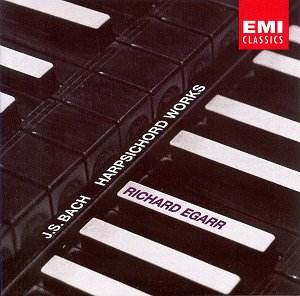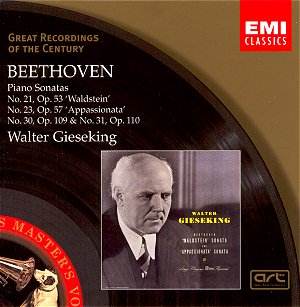 Composer: Frédéric Chopin
Composer: Frédéric Chopin
Works: Waltzes – complete – nos 1-19, Impromptus – complete – nos 1-4
Performers: Georges Cziffra, piano
Recording: Recorded 1974, 1977, 1978, Salle Wagram, Paris
Label: EMI Classics 5 74975 2
Chopin’s waltzes and impromptus occupy a cherished place in the piano repertoire, embodying the composer’s lyrical genius and innovative harmonic language. These works, composed during the early to mid-19th century, reflect not only Chopin’s own stylistic evolution but also the societal shifts of his time, intermingling the elegance of Polish folk music with the burgeoning Romantic ideals of individual expression. On this collection, Georges Cziffra, a pianist marked by both virtuosic flair and dramatic interpretative choices, offers a unique lens through which to experience these beloved compositions.
Cziffra’s approach to Chopin is at once exhilarating and contentious. His technical prowess is evident from the outset, his fingers dancing over the keys with a blend of power and precision. Yet, this power often comes at the expense of the delicacy and nuance that characterize much of Chopin’s music. For instance, in the famous Minute Waltz (No. 6), Cziffra’s electrifying tempo and rhythmic drive create an exhilarating listening experience, yet one might argue that such frenetic energy risks overshadowing the piece’s inherent charm. Nonetheless, his interpretation possesses a certain breathtaking quality, particularly in the way he navigates the intricate passages, revealing subtleties that might escape a more traditional reading.
The slower waltzes, such as No. 9 (L’Adieu), demonstrate Cziffra’s penchant for rubato, which, while occasionally straying into the realm of the mannered, also allows for unexpected insights into the music’s inner workings. His style diverges significantly from Chopin’s own, which, as noted by contemporaneous accounts, balanced a steady left hand with subtle variations in the right. Yet, Cziffra’s interpretation invites listeners to reconsider these familiar pieces, as he unearths fleeting melodic lines and textures that might otherwise remain obscured. This is particularly evident in the flowing lyricism of No. 10 in B minor, where his capacity for delicate phrasing shines, creating a magical atmosphere.
The Impromptus fare better within Cziffra’s hands, responding more favorably to his dramatic interpretative choices. The first Impromptu in A flat, in particular, showcases his ability to blend power with lyrical expressiveness, achieving a balance that resonates deeply throughout the piece. The recording quality is largely commendable, capturing Cziffra’s dynamic range and tonal color with clarity, though one may occasionally sense a slight harshness in the upper register, which can detract from the overall warmth of the sound.
While Cziffra’s interpretations of Chopin might not align with purist sensibilities, his recordings are undeniably compelling. The pianist’s formidable technical gifts and distinctive interpretative voice bring a fresh perspective to these well-trodden works. Audiences may find themselves polarized by his mannerisms, yet there is no denying that this disc showcases a remarkable talent at work. Cziffra’s readings might not satisfy those who prefer a more traditional approach to Chopin, but they certainly invite discussion and reflection on the nature of interpretation itself. This recording stands as a testament to the enduring power of Chopin’s music, reimagined through the lens of one of the 20th century’s most electrifying pianists.



